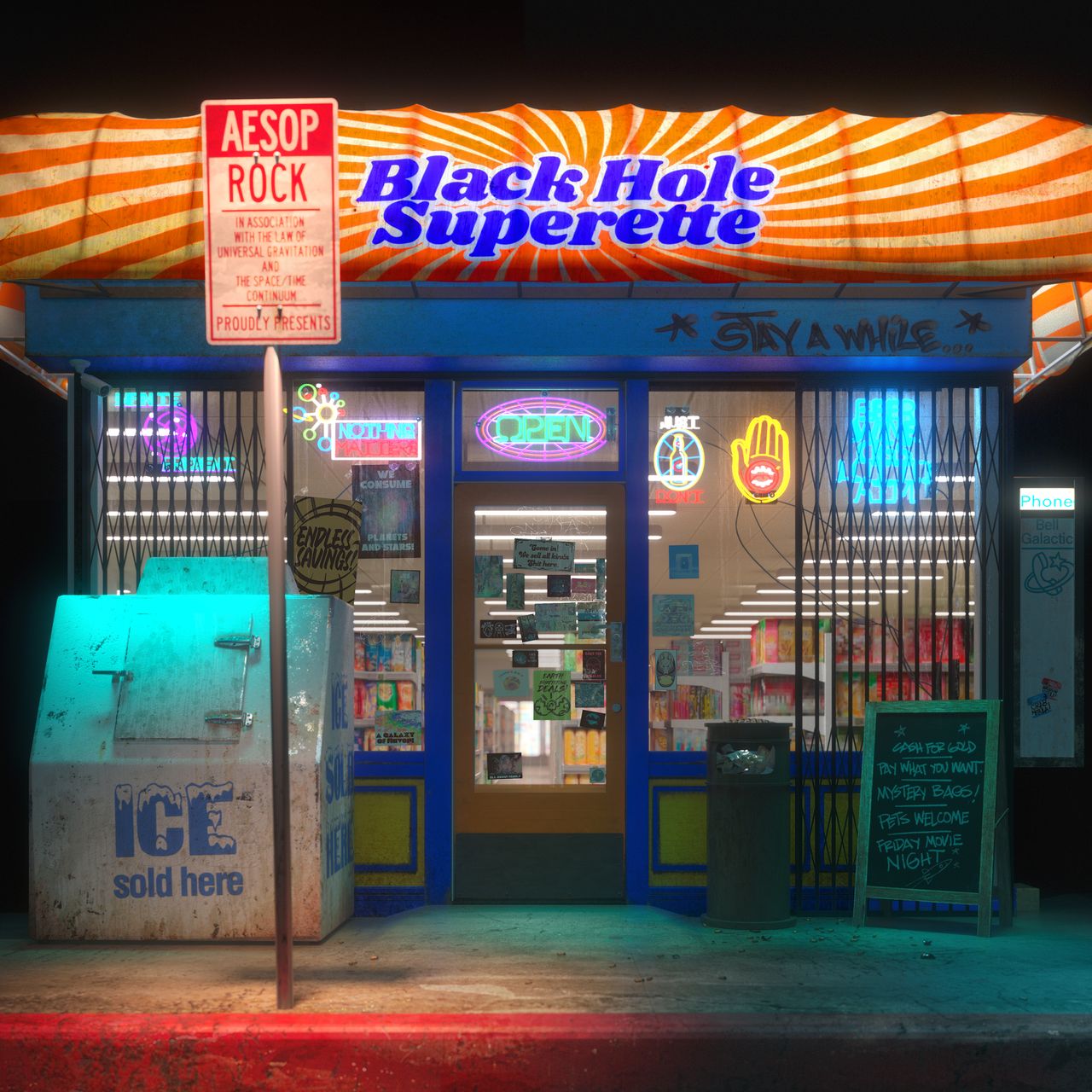For Aesop Rock, the line between perceptive and paranoid has always been blurry. Fleeting observations can turn his thoughts into a red-string conspiracy board, mapping out complex connections in search of hidden spheres of meaning. On Tobacco’s “Dirt,” for instance, he turns a glance at a yard full of topiary into a psychedelic examination of the human desire to separate from nature by taming it. His keen sense for detail can be a trap: He hears a slight noise outside on “Dog At The Door,” a shifty-eyed highlight from 2020’s Spirit World Field Guide, which raises his hackles, setting his mind loose to imagine all sorts of dangerous and violent scenarios. On Black Hole Superette, Aesop still notices the little things, but instead of sending his thoughts into lysergic fractals or bullet-sweating anxiety, they more frequently bring him a sense of calm and wonder.
Despite his reputation as a writer of impenetrable abstraction and intimidating vocabulary, Aesop structures his albums around fairly digestible concepts. Labor Days, his 2001 breakthrough, scrutinized the tug of war between self-actualization and the necessity of work; 2012’s Skelethon was a pitch-black analysis of how grief lingers and metastasizes; his last record, 2023’s Integrated Tech Solutions, probed the systems under which we live and how they assign or strip value from art, community, and human beings themselves. With Black Hole Superette, Aesop, now closing in on 50, is primarily concerned with aging. He notices a new perspective: Growing older isn’t all back pain or the lament of past lives; discovering new wrinkles can also refer to your identity.
Aesop catalogs moments of mundanity, turning them over in his hands until they reveal their quiet magic. There’s an almost quizzical delight in his voice when he details the majesty of his vegetable garden during “EWR – Terminal A, Gate 20” or the various characters he runs into while walking his dog on “Movie Night.” The homebody anthem “Costco” is a tour of Aesop’s insular day-to-day, which consists of washing dishes while watching Jeopardy!, dusting weed crumbs from various surfaces, and realizing he should invite people over more often. He sprinkles food in his fish tank and notices a steadily multiplying Bladder Snail, a scenario he explores in hilarious depth a few songs later on “Snail Zero,” where a newly-embraced live-and-let-live mentality overtakes his usual nervous need for order. “Bird School” is one of Black Hole Superette’s giddiest tracks, with Aesop explaining the grandeur of watching 12,000 Vaux’s swifts plunge into the chimney of a Portland elementary school to roost. So much of Aesop’s past work feels near agoraphobic, taking place within the confines of his mind or the walls of his apartment—but here he is, sitting with hundreds of other Portlanders to observe the astonishing spectacle. He pulls a Diet Coke from his cooler and snacks on kiwi slices, both of which are on offer if you’d care to join him.
